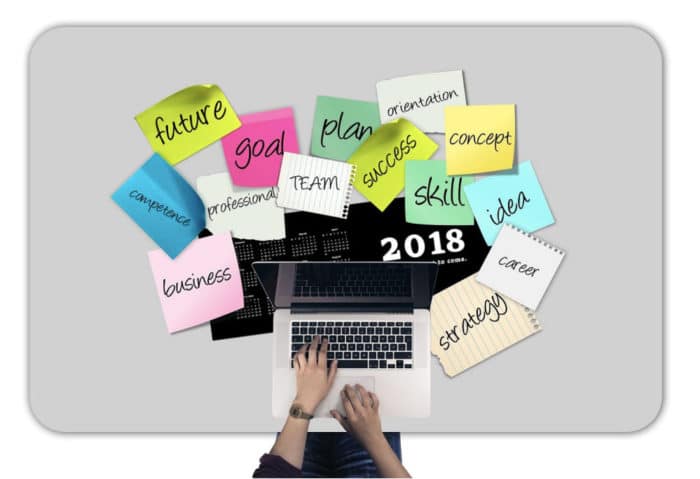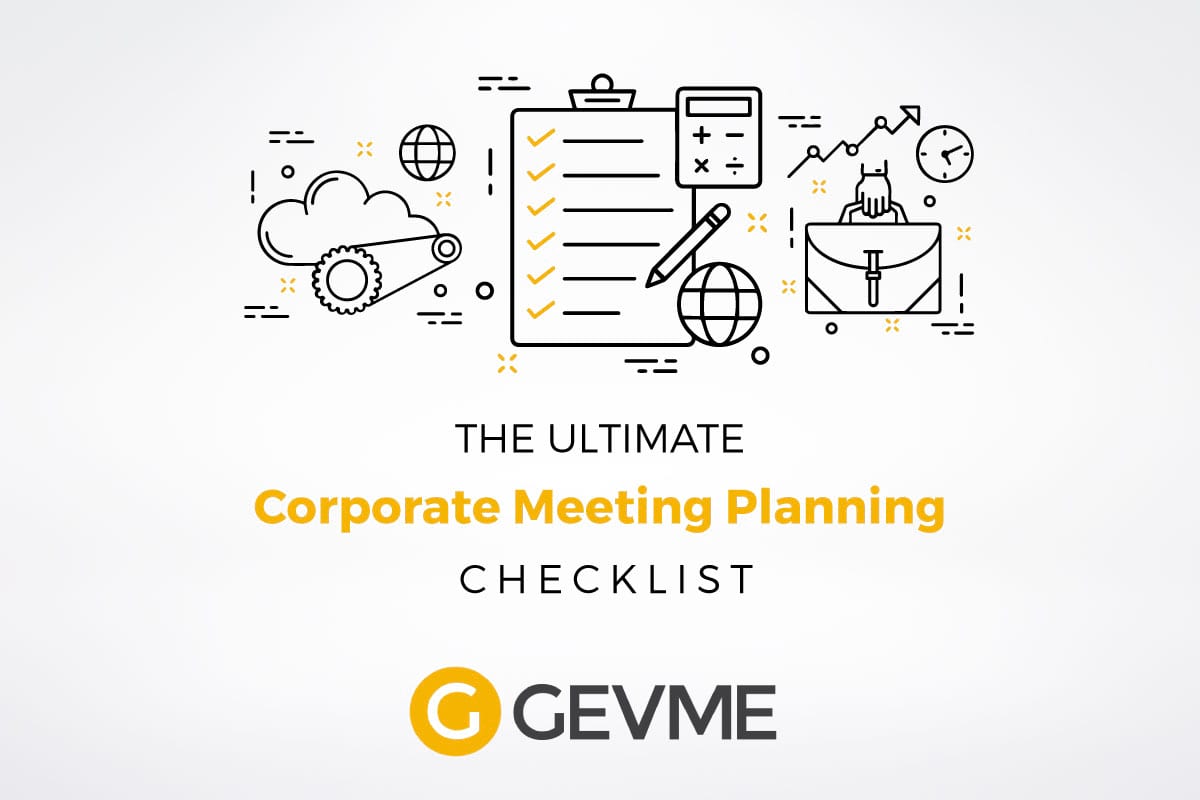Not until facing all the organizational troubles does an event manager fully realize what a challenge corporate event planning is. To meet the expectations of a corporate team within the established deadline and budget, you have to dot all the i’s and cross all the t’s. Corporate event planning checklists are handy tools for structuring your plans, setting event goals, and tracking planning progress.
What is a corporate meeting checklist?

Checklists for corporate meetings represent the inventory of core event-related tasks that have to be completed by an event planner and/or a team of event managers before, during, and after the event. To make a checklist into a valuable piece of information for your event, you should align all the points with the goals of planning, administrative processes, execution, and monitoring.
Why do you need a corporate event planning checklist?
Proper preparation can be a life saver on the important day. Check out the essential benefits of developing a corporate meeting planning checklist:
- Envision your corporate event from beginning to end. Checklists for corporate event planners enable a constructive vision for the event which helps to see the larger picture. By matching the goals of pre-event activities with those that follow-up the meeting, you can also identify some breaches in communication channels or the lack of tools for reporting. In other words, checklists are there to help event planners recognize the possible problems early enough to improve their strategy.
- Assign responsibilities. If you can tap into all event goals and processes from one place, it’s easier for you to understand who should take charge of each particular task.
- Budget and schedule. Apart from satisfying the corporate team, the meeting should also satisfy the budget and the established timeline. Breaking the event processes into smaller segments helps develop a more comprehensive budget plan and schedule the activities.
Corporate event planning checklist
Corporate meeting planning checklists should provide a well thought-out outline for all the marketing, budget planning, administrative, and operational processes that a specific corporate event involves. Therefore, it’s impossible to solidify your corporate planning through the development of a standard checklist formula. However, if you arm yourself with the following checklist structure, you’ll have a great scaffolding:
Before the event

Based on the size and sophistication of the corporate event, start your planning not later than 18 months before the meeting. Here are some points that you can build into your initial pre-event corporate meeting checklist:
- Establish the date, location (or the options of locations), and the length of the corporate meeting.
- Establish the corporate meeting goals based on client’s expectations. As an option, incorporate several event ideas and review them with the corporate team.
- Gather your event team, find volunteers to help you on the event day, and assign the core responsibilities. As an alternative, you can add the names of people in charge to the checklist points.
- Set a budget and develop a plan for all financial reporting procedures.
- Plan branding activities.
- Launch a website or a landing page on a company site with all the necessary information about the corporate meeting. You can use GEVME Website Builder to create a website without any coding skills.
- Draw a plan for promotional campaigns (if needed). This is relevant if you’re setting up a large-scale corporate event or if your client wants to raise awareness about the company.
- Create a guest list and develop corporate meeting invitations using branding and event highlights.
- Develop an initial plan for operational processes (catering, cooperation with vendors, decorations, in-house constructions, etc.).
As the meeting gets closer
Approximately 4 months before the corporate meeting, you should embrace more attendee-directed processes to prepare the guests for the event. Check out the final corporate meeting event checklist elements that you should consider before the start:
- Send out the first invitations to the guests and set up the process of registration. Protip: identify which tools or online channels you’ll use for each point that relates to the interaction with attendees.
- Schedule further email campaigns with GEVME Email Marketing.
- Book all the necessary equipment for the venue and establish the dates for installation.
- Assign onsite staff tasks and make a final team responsibilities’ review.
- Accomplish all the security measures.
- Confirm the final meeting schedule with the client establishing registration, presentations, and entertainment activities.
The day of the meeting

So, the time has come! No matter how well prepared you are, there is still much to handle on the event day. Consider incorporating the following tasks into your last-day checklist:
- Check the status of shipments and equipment deliveries.
- Brief the event team.
- Track onsite navigation, registration processes, and engagement in real time.
- Keep the guests engaged by sending email updates and personal recommendations throughout the event.
After the meeting
Yes, you still have some work to do. To stretch communication with event guests and follow-up with the outcomes, plan some activities that should be implemented after the meeting:
- Send out thank-you emails. If relevant, you could also send the photos from the meeting in your follow-up email.
- Use surveys to capture feedback about the meeting and use the gained information to improve your strategy next time.
- Set up a post-event meeting with your team and with the client to discuss the outcomes.
Corporate event planning tips
To get the most out of your corporate meeting preparation checklist implement the following tips:
- Don’t overlook minor expenses. Some event planners don’t give enough weight to the budget expenses for handouts, banners, printing services, etc. If you follow this path, your overall budget strategy can turn into a flop. Include the most minor expenses into your checklist to keep track of the complete financial records.
- Have a portfolio of your projects. Corporate events are rarely one-act shows. To cooperate with companies on a long-term basis, create a portfolio of your projects to illustrate your expertise.
- Use integrated solutions. To manage corporate planning from one place, use integrated software solutions with multiple apps.
Get started with Gevme to integrate your post-, during-, and after-event expertise.








